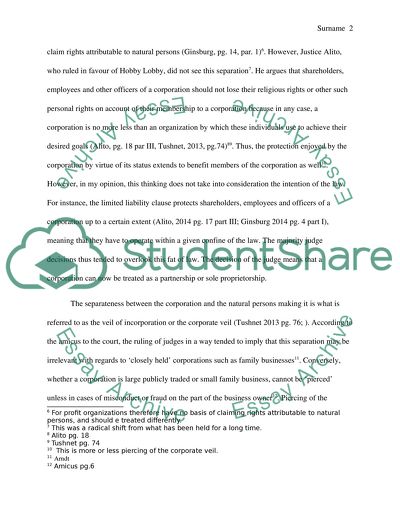Cite this document
(“Support or Oppose Hobby Lobby decision Case Study”, n.d.)
Support or Oppose Hobby Lobby decision Case Study. Retrieved from https://studentshare.org/law/1664211-support-or-oppose-hobby-lobby-decision
Support or Oppose Hobby Lobby decision Case Study. Retrieved from https://studentshare.org/law/1664211-support-or-oppose-hobby-lobby-decision
(Support or Oppose Hobby Lobby Decision Case Study)
Support or Oppose Hobby Lobby Decision Case Study. https://studentshare.org/law/1664211-support-or-oppose-hobby-lobby-decision.
Support or Oppose Hobby Lobby Decision Case Study. https://studentshare.org/law/1664211-support-or-oppose-hobby-lobby-decision.
“Support or Oppose Hobby Lobby Decision Case Study”, n.d. https://studentshare.org/law/1664211-support-or-oppose-hobby-lobby-decision.


